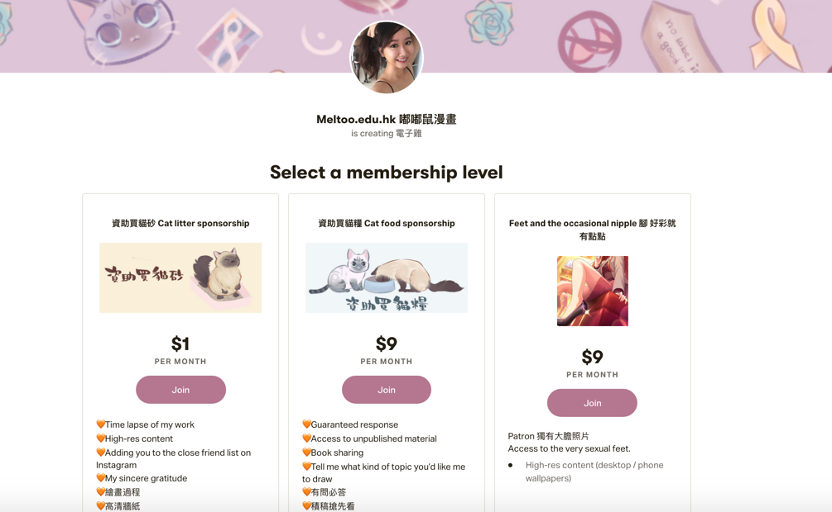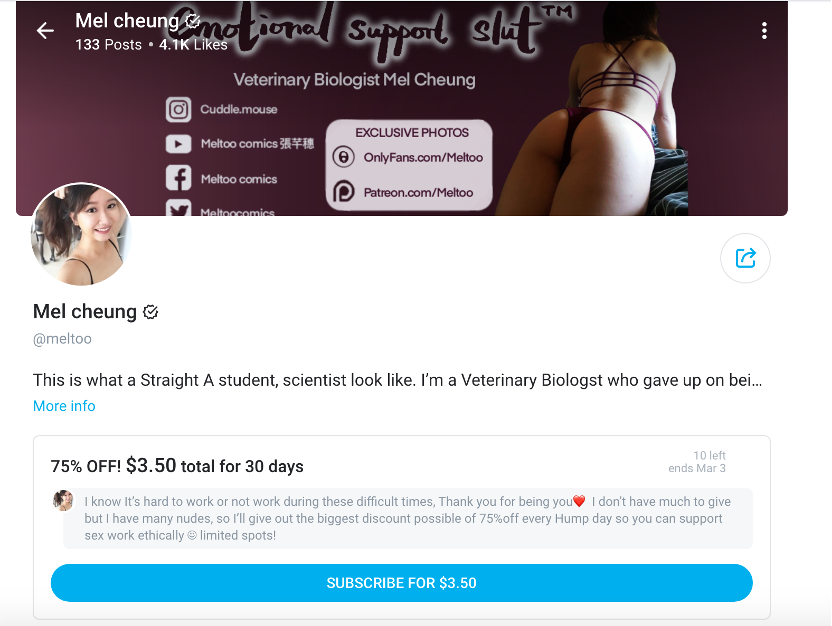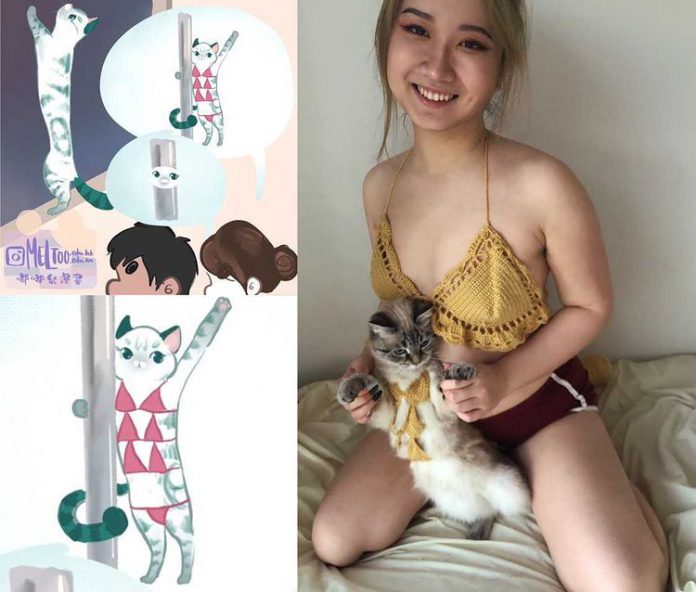Melissa Cheung Chin-sui shares her transformation from a body shamer to a body-positive advocate.
By Charmaine Choi
Cheung posts Instagram stories and posts daily to advocate for body positivity.
“Everyone should be able to dress up in the way they want,” the 27-year-old cartoonist says.
Cheung runs an Instagram cartoon page with 16,700 followers.
“Drawings can be easily understood by everyone, and therefore my work can reach a larger audience (compared to texts),” she adds.
Other than body positivity, Cheung also advocates for feminism and gender rights on her page.
“Everyone should have gender awareness. It is unfair that people are stereotyped because of their gender.”
“Everyone should have gender awareness. It is unfair that people are stereotyped because of their gender,” she says.
As an active advocate, Cheung receives comments and messages from haters. “The concept of feminism is still new to Hong Kong. People always mix up misogyny with feminism,” she explains.
Cheung is not afraid to make her stance clear, she chooses to respond to them instead of shying away. She often posts screen capture of her clapping back at her haters’ comments on her social media platform.
“I hope the public can make their own judgements regarding those hate comments. I guess people are not going to beat me up for that,” she says with a laugh.
The Wakeup Call
LIHKG is a Hong Kong-based forum where hot topics are discussed among Hongkongers. The forum made Cheung famous four years ago.
Cheung relied on LIHKG to learn about the latest news in the city when she studied veterinary science in Australia.
“LIHKG users always judge and make fun of the appearance of female celebrities and even random girls they see on the streets,” she says.
Cheung was not aware it was body-shaming at the time and even joined discussions about female body shapes.
In July 2017, a male Instagram follower of Cheung caught her attention. The male follower claimed to be cool and good-looking in his bio. Out of curiosity, Cheung asked him for pictures.
After getting his picture, Cheung contacted him through private messages saying: “You look like a pervert who rapes woman” and “Your style is so outdated, change it up”. She made negative comments on his appearance.
She then posted the conversation on LIHKG. Netizens started bombarding her with messages attacking her appearance saying she was fat and ugly.
Her personal information such as her educational background and phone number was revealed online. Her confidence and body image dropped to a new low.
“I refused to take selfies at the time. I did not want to look at my body,” she says.
Having experienced body-shaming herself, she realised how damaging it can be to one’s self-perception. She then became interested in learning about gender issues and body image.
She read books analysing the feminist ideals, including one she referred to as the “fundamental to feminism” — Misogyny in Japan by Chizuko Ueno.
She also visited websites such as edX, a platform that provides free university-level courses to learn more about the power dynamics between genders.
Foreign cartoonists on Instagram such as @eloisemarseille and @cartoonshateher have taught her to embrace and appreciate different body types.
“I learned that everyone should be loved and respected regardless of their appearance. As a person who has been down the road before, I hope to share my thoughts and reflection,” she says.
This one-year learning journey was crucial to her awakening. After the reconstruction of a brand-new mindset, she felt that advocating gender rights and body positivity is the best way to make up for her wrongdoings.
In 2018, Cheung decided to start an Instagram cartoon page dedicated to body positivity and other gender-related issues.

From a Cartoonist to an “Online Chick”
After learning about body positivity, Cheung thinks women should decide what they wish to do with their bodies. She started creating sexual content on online platforms such as Patreon and OnlyFans as a symbol of bodily autonomy since 2020 for money.
“I enjoy expressing sex by taking revealing pictures and sharing them with others. Isn’t it nice that I can earn some pocket money while doing something that I love?” she says.
Patreon and OnlyFans are online platforms that allow content creators to gain monetary support from their fans by providing exclusive content.
These platforms have attracted a number of sexual content providers like Cheung to earn money through providing pictures of her in lingerie and photos of her being topless.

“I do not see anything wrong with making money with one’s body. I call myself an ‘online chick’. This is my take on reclaiming ‘chick’,” she says.
Cheung also treats her topless photos as advocacy of “Free the Nipple”. “Male nipples are equivalent to female nipples, why is it that only female nipples are censored?” she questions.

Cheung disagrees with the idea that producing sexual content is materialising females. She thinks that sexual content provision is a way for females to be in control of their bodies.
“It does not mean that I am putting a price tag on myself. I am only putting a price tag on the photos that I provide,” she says.
“There are people who support me on Patreon and OnlyFans because they support my advocacy. It is not just about my body,” she adds.
Moving on
Cheung hopes that Hong Kong people can learn to adopt a less gender-stereotypical view and recognise individuality. “We are all different in our own ways. It is over-simplifying to generalise our differences according to our genders,” she says.
“I body-shamed others in the first place, so I deserve to be attacked by others in return,” Cheung says recalling what happened in LIHKG four years ago.
” Body-shaming should be stopped. More people should stand up against this toxic culture.”
“Body-shaming should be stopped. More people should stand up against this toxic culture,” she adds.
Edited by Sarah Ryou
Sub-edited by Alice Wang







































